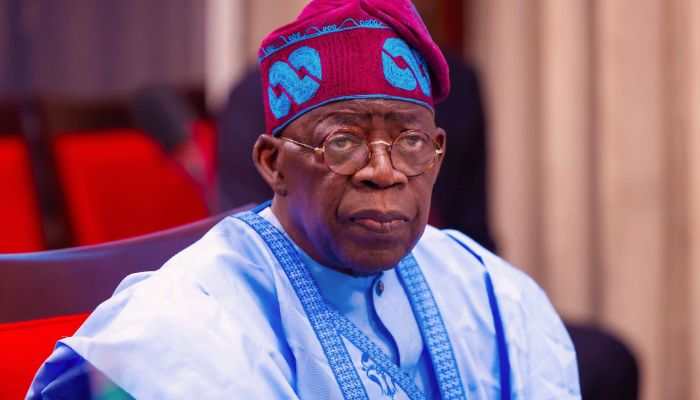“Turned the corner?” Tinubu’s Independence speech offers numbers, not solutions
President Bola Ahmed Tinubu’s 65th Independence Day address was designed as a reassurance. With a flourish of statistics, he declared that Nigeria has “turned the corner”. GDP growth is accelerating, inflation has slowed, reserves are healthier, and non-oil revenues are rising. On paper, the arithmetic looks impressive. Yet in the real economy, the one measured by food prices, power supply, and security of daily life, the corner is not yet turned. Nigerians are still waiting for proof that reform has meaning beyond the spreadsheet.
Take the GDP numbers. The 4.23 percent growth recorded in Q2 2025 is indeed Nigeria’s fastest in four years. But compare it with the country’s population growth of 2.4 percent, and the per capita improvement is barely above subsistence. Worse, a significant share of this expansion comes from oil output rebounding to 1.68 million barrels per day. Oil is an unreliable crutch. Sabotage, price volatility, or OPEC constraints can quickly unravel such gains. True growth must come from industries that employ people and add value locally: agriculture, manufacturing, and services, not just crude extraction.
Read also: Full text of President Bola Tinubu’s 65th Independence Day speech
“This is the deeper problem with Tinubu’s narrative: it confuses macro arithmetic with national rescue. Nigerians want electricity that works, not just megawatts in a budget. They want rice they can afford, not just GDP statistics. They want teachers in classrooms, not just enrollment figures.”
Tinubu also points to declining inflation: 20.12 percent in August, the lowest in three years. That is better than the 30 percent highs of 2023, but hardly a victory. For ordinary families, 20 percent inflation is economic violence; it erodes wages, empties savings, and forces impossible trade-offs. Nigeria’s food inflation still hovers above 28 percent, one of the highest in Africa, higher than Ghana’s 23 percent and far worse than South Africa’s 5.3 percent. The government celebrates disinflation as though prices are falling. They are not. Prices are simply rising at a slightly slower pace, and for millions, the pain remains acute.
Foreign reserves at $42 billion are another headline the President touted. This matters for stabilising the naira, which has indeed regained some footing after last year’s chaos. Yet reserves are not the same as prosperity. They are buffers, not bread. The gap between the official and parallel exchange rates has narrowed, but imported inflation still makes basic goods unaffordable. Until local productivity increases, a strong reserve position risks being just another fragile illusion.
The government’s social interventions, ₦330 billion to eight million households, are cast as a safety net. In truth, they function as expensive Band-Aids. Cash transfers can relieve hunger for a month; they cannot build livelihoods for a lifetime. Nigeria needs job creation, not perpetual stipends. Youth credit initiatives such as NELFUND, Credicorp, and YouthCred are welcome in theory, but Nigerians have seen such schemes before: well-packaged, loudly announced, poorly tracked, and eventually captured by rent-seekers. Transparency, independent audits, and scale will decide whether these schemes lift millions or enrich a few.
Read also: Tinubu urges Nigerians to patronize Made in Nigeria goods
Security claims demand equal scrutiny. Tinubu lauded the gallantry of the armed forces, declaring that terrorism has been rolled back and peace restored to hundreds of communities. That is true in pockets. But insecurity has not abated; it has mutated. Banditry in the Northwest, kidnappings in the Middle Belt, communal clashes in Plateau, oil theft in the Delta, and separatist violence in the Southeast still blight daily life. According to SBM Intelligence, at least 1,200 Nigerians were kidnapped in the first half of 2025 alone. Schools remain vulnerable to abductions, farmers to raids, and traders to extortion on highways. “Peace” on paper is not the same as safety on the ground.
This is the deeper problem with Tinubu’s narrative: it confuses macro arithmetic with national rescue. Nigerians want electricity that works, not just megawatts in a budget. They want rice they can afford, not just GDP statistics. They want teachers in classrooms, not just enrollment figures. They want to feel safe walking to the market, not just hear speeches about cleared towns. Until these realities change, claims of “turning the corner” will ring hollow.
Credit must be given where it is due. Removing subsidies and unifying FX were politically costly choices; previous governments kicked those cans down the road. But courage in policy must be followed by honesty in delivery. The claim that “the worst is over” is premature unless matched by clear metrics: falling food inflation, verifiable poverty reduction, transparent audits of social spending, and genuine industrial take-off. Otherwise, the reforms risk being remembered as another cycle of austerity without transformation.
Nigeria at 65 is at a crossroads, not a corner. It faces the same structural bind that has haunted it for decades: a state too weak to deliver services, an elite too insulated from the consequences of failure, and a population too resilient for its own good. Nigerians endure, adapt, and survive. But endurance is not prosperity.
Read also: Tinubu’s independence day speech: Promises of reform, but execution remains key
Tinubu’s administration must now prove that the numbers it celebrates translate into improved lives. Growth must mean jobs. Reserves must mean stability. Inflation declines must mean food on the table. Otherwise, Independence anniversaries will continue to be marked by speeches of promise while reality tells another story.
On this anniversary, Nigerians deserve more than statistics; they deserve a government that converts reform into dignity, numbers into nourishment, and rhetoric into results. The next test is not the President’s next speech, but whether, by Nigeria’s 66th Independence Day, the country feels more secure, better fed, better educated, and genuinely on the path to prosperity.
Until then, the question remains: has Nigeria really turned the corner, or is it still circling the roundabout of promises unmet?

